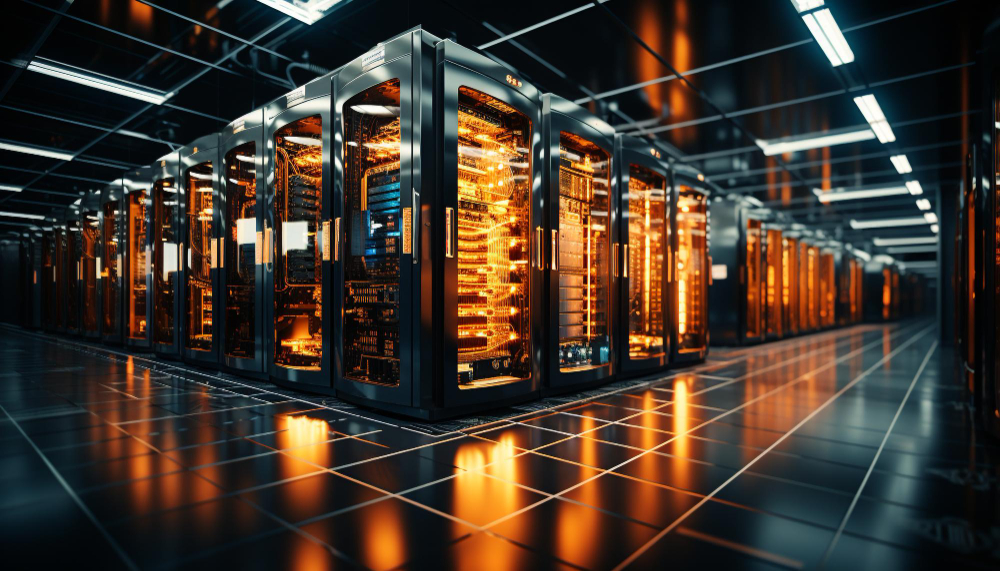India must urgently ramp up its AI infrastructure—ranging from real estate to power supply—to stay competitive in the global AI race, according to Deloitte India’s latest report titled Attracting AI Data Centre Infrastructure Investment in India. The report estimates that the country will need an additional 45–50 million square feet of real estate and 40–45 Terawatt Hours (TWh) of incremental power by 2030 to support its growing artificial intelligence (AI) ecosystem.
India’s AI Potential Hinges on Infrastructure Scale-Up
Despite being home to nearly 20% of the world’s data, India currently holds just 3% of global data centre capacity. As its AI market is projected to reach $20–22 billion by 2027, the country faces significant challenges in scaling its computing infrastructure.
“India must fast-track the development of AI-ready infrastructure if it wants to keep pace with global AI demand,” said S. Anjani Kumar, Partner at Deloitte India. He added that beyond physical infrastructure, stronger public–private partnerships, policy reforms, and enhanced R&D capabilities will be key to making India a global AI leader.
Six Pillars for Building an AI-Ready Ecosystem
The report lays out six critical focus areas that India must strengthen to realize its AI ambitions:
Real Estate for Data Centres
Power and Utility Infrastructure
Connectivity and Network Infrastructure
Compute Infrastructure
Talent Pool
Policy Framework
While India’s relatively lower land and labor costs offer an advantage, substantial new construction is essential to meet the coming demand for AI data processing capabilities.
Powering the AI Surge: Energy Demands Soar
India’s burgeoning data centre sector is placing increasing pressure on its power grid. The Deloitte report stresses the urgent need to expand power generation and transmission capacity while integrating more renewable sources.
It recommends recognizing data centres as critical infrastructure under the Essential Services Maintenance Act and revising the National Building Code to introduce a dedicated category for data centres. This, along with accelerated approvals and clear regulatory frameworks, could significantly speed up deployment.
Bridging Connectivity Gaps
India continues to face serious connectivity issues, especially in rural areas where fibre optic penetration and high-speed internet access remain limited. These challenges hinder the country’s ability to support AI-driven infrastructure.
The report suggests key policy actions such as enabling affordable access to dark fibre, aligning regulations with global standards, and allowing data centres to build their own terrestrial and subsea networks. Improved last-mile connectivity and network redundancy are also flagged as crucial investments.
Compute Infrastructure: The Backbone of AI Centres
High-performance compute capabilities, particularly Graphics Processing Units (GPUs), are at the heart of AI operations. India must urgently boost its GPU supply and promote models like GPU-as-a-Service (GPUaaS) to meet AI processing demands.
The report recommends fostering foreign investment in Exaflop-scale computing capacity and engaging in intergovernmental discussions to navigate global restrictions, such as the U.S. AI diffusion framework, which may impact hardware imports.
Talent and Research: The Missing Link
India’s AI ambitions face a serious talent bottleneck due to a lack of specialized educational programmes and limited AI-focused research institutions. Upskilling the workforce and strengthening collaboration between academia and industry are essential steps forward.
Deloitte India suggests forming partnerships with universities and tech firms to offer practical, job-ready AI training programs. Expanding R&D capabilities will also drive innovation and local talent development.
Policy Reform: The Cornerstone of AI Infrastructure
Robust policy support is indispensable for India’s AI transformation. The report recommends several legislative and regulatory changes, including:
Introducing Text and Data Mining (TDM) exceptions under the Copyright Act.
Streamlining data localisation norms.
Creating dedicated data centre zones.
Amending provisions in the Bharatiya Nagarik Suraksha Sanhita (BNSS), 2023 to accommodate operational realities of data centres.
Exempting data centres from certain surveillance scopes under the Telecommunication Act, 2023.
Implementing safe harbour protections for data hosting providers.
Establishing data embassies to attract global investments.
“These targeted policy interventions can create a future-ready AI ecosystem and position India as a global leader in AI infrastructure,” said Neha Aggarwal, Partner at Deloitte India. She stressed the importance of high-performance compute systems, efficient power and cooling mechanisms, and a forward-looking policy environment.
India’s opportunity to lead in the global AI space is vast, but to realize it, the country must invest heavily in infrastructure, energy, talent, and policy reform. Deloitte India’s report offers a comprehensive roadmap—but timely execution will be critical.



